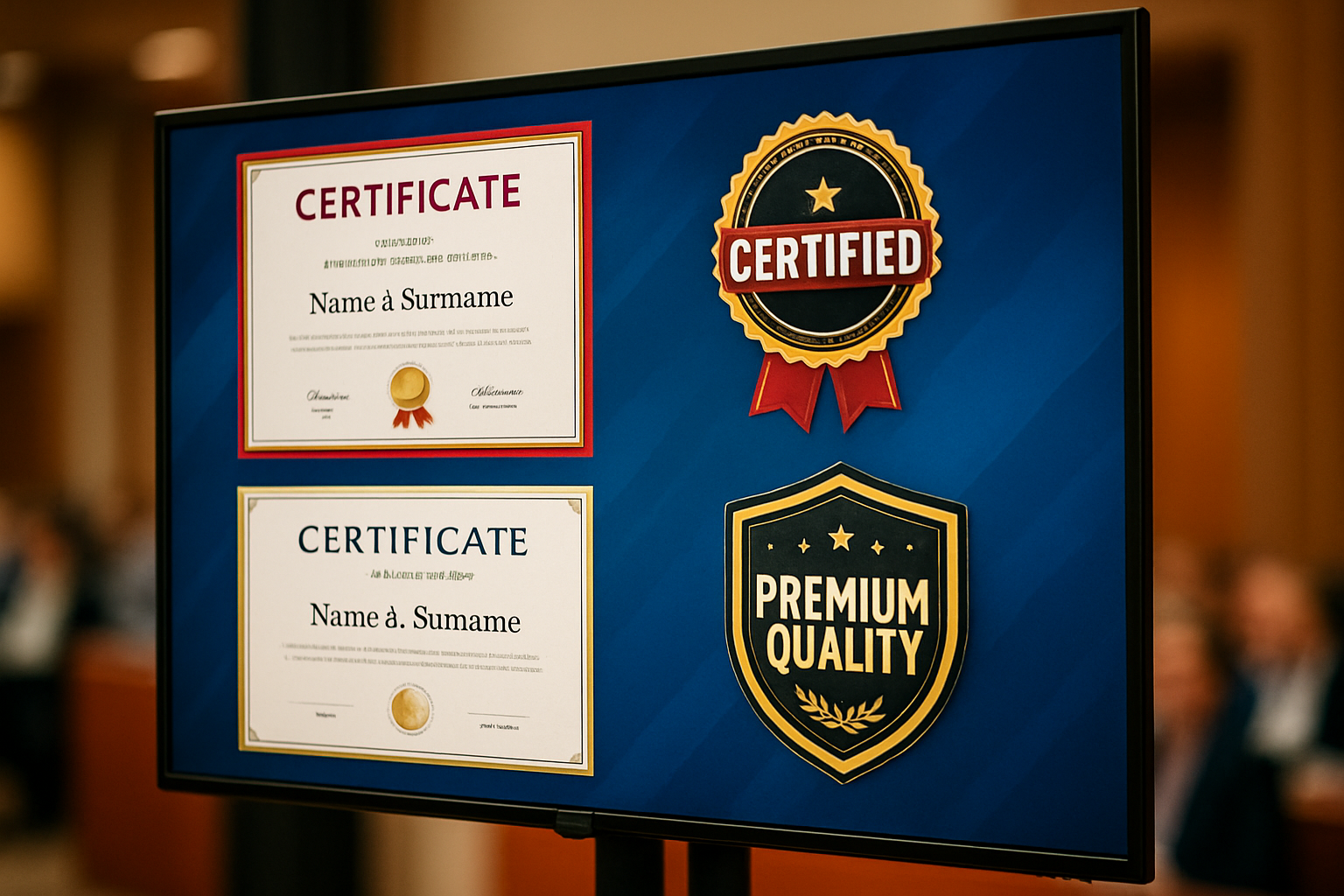
Top certifications for IT beginners
The world of technology is vast, exhilarating, and constantly evolving. For those just stepping into the IT field, the landscape can feel both inspiring and overwhelming. Certifications serve as a reliable roadmap, offering structure, credibility, and foundational knowledge for beginners. Whether your aspirations lie in network administration, cybersecurity, cloud computing, or software development, earning recognized certifications can be a transformative first step.
Why Certifications Matter for IT Beginners
Unlike traditional degrees, IT certifications are often more accessible and focused on practical skills. They validate your knowledge to potential employers, especially when you have limited experience. In a rapidly changing field, certifications also demonstrate your commitment to continuous learning—a quality highly valued in technology roles.
“Certifications don’t just open doors; they show you’re ready to walk through them.”
For neurodivergent learners, certifications can provide a structured pathway that breaks down large, intimidating concepts into manageable sections. The clear goals and milestones can be especially helpful for those who thrive on routine and clarity.
Essential Entry-Level IT Certifications
CompTIA IT Fundamentals (ITF+)
The CompTIA IT Fundamentals (ITF+) is an ideal starting point for absolute beginners. This certification covers basic IT concepts including software, hardware, security, and networking. It’s designed to help individuals decide if a career in IT is right for them, making it perfect for career changers or those still exploring their interests.
Key benefits:
- Accessible to those with little or no IT background
- Covers a broad spectrum of IT basics
- Acts as a stepping stone to more specialized certifications
CompTIA A+
Often considered the “entry ticket” for IT support roles, CompTIA A+ is widely recognized by industry employers. It’s vendor-neutral, meaning its content isn’t tied to a specific technology provider.
This certification proves your ability to troubleshoot, configure, and maintain PCs, mobile devices, and software. Many help desk and technical support positions list CompTIA A+ as a requirement or strong preference.
“A+ was my launchpad into IT. The hands-on, scenario-based questions helped me bridge the gap between theory and practice.”
Google IT Support Professional Certificate
Developed by Google, this certificate is available through Coursera and designed for beginners with no prior experience. The curriculum focuses on troubleshooting, customer service, networking, system administration, and security.
What sets this certification apart is its emphasis on practical skills and its accessibility—no college degree required, and it can be completed at your own pace. Google’s recognition on a resume signals to employers that you’re job-ready.
Microsoft Certified: Azure Fundamentals (AZ-900)
Cloud computing is reshaping IT, and foundational cloud certifications are in high demand. The Azure Fundamentals certification introduces you to cloud concepts, core Azure services, security, and privacy in the cloud.
This certification is vendor-specific but highly valuable, as Microsoft Azure is one of the world’s leading cloud platforms. It’s suitable for those considering cloud-related roles or wanting to understand how cloud technologies integrate with traditional IT.
AWS Certified Cloud Practitioner
Similar in scope to Microsoft’s Azure Fundamentals, the AWS Certified Cloud Practitioner is Amazon’s introductory certification. You’ll learn the basics of Amazon Web Services, including global infrastructure, cloud architecture, billing, and security.
Even if you’re not aiming to become a cloud engineer, this certification helps you understand how cloud services underpin modern IT operations.
Cisco Certified Support Technician (CCST)
Cisco’s new CCST validates foundational networking knowledge. It’s a strong choice for beginners interested in networking, offering a stepping stone to more advanced Cisco certifications like the CCNA.
The CCST exam covers network fundamentals, security, and troubleshooting—skills that are essential in today’s interconnected world.
Specialty Certifications for Focused Career Paths
Certified Cybersecurity Entry-level Technician (CCET) by (ISC)2
As cybersecurity threats grow, even entry-level roles increasingly require proof of security awareness. The CCET is designed for those with zero experience, teaching basic security principles and practices.
This certification is especially valuable for those interested in security operations, risk analysis, or compliance. Employers appreciate the (ISC)2 brand, known for its rigorous standards.
Google Associate Cloud Engineer
For those exploring cloud infrastructure, the Google Associate Cloud Engineer demonstrates your ability to deploy applications, monitor operations, and manage enterprise solutions on Google Cloud Platform.
While slightly more advanced than foundational cloud certificates, motivated beginners can achieve it with dedicated study. It’s a gateway to Google Cloud’s growing ecosystem of certifications.
Certified ScrumMaster (CSM)
Project management and teamwork are crucial in IT. The Certified ScrumMaster certification introduces agile methodologies, focusing on Scrum—a framework widely adopted in software development and IT project management.
CSM is accessible to beginners and is particularly useful for those interested in collaborative or leadership roles. Understanding agile principles can set you apart, as many employers look for candidates who can adapt and work efficiently in dynamic environments.
Certifications Empowering Women and Neurodivergent Learners
The IT industry’s most exciting transformations are happening through inclusivity. Today, more women and neurodivergent individuals are breaking into tech, supported by learning paths designed for a variety of strengths and learning styles.
Women-Focused Training Programs
Organizations like Women Who Code, Girls Who Code, and SheCodes offer certification programs, workshops, and mentorship. Their curricula often include industry-recognized certifications, providing not just technical knowledge, but also community and encouragement.
“Learning alongside women who share my experiences and ambitions changed my confidence, not just my skills.”
Accessible Certification Resources
Many certification providers now offer accommodations for neurodivergent learners, including extended test time, quiet testing environments, and accessible study materials. For example, CompTIA and Microsoft have dedicated support teams to guide candidates through the process of requesting accommodations.
Online learning platforms such as Coursera, Udemy, and LinkedIn Learning allow for flexible pacing—ideal for those who benefit from self-directed study or need additional time to process new concepts. Interactive labs, practice tests, and video tutorials cater to different learning preferences.
How to Choose the Right Certification for You
Begin by reflecting on your interests and long-term goals. Are you fascinated by networks, passionate about protecting data, or excited by the possibilities of cloud computing? Consider the following when choosing your first certification:
- Relevance to your desired role: Review job postings to see which certifications employers request for entry-level positions.
- Accreditation and recognition: Choose certifications from reputable organizations, as these are more likely to impress hiring managers.
- Level of difficulty: Start with foundational or beginner-level certificates before progressing to advanced ones.
- Learning support: Look for providers that offer practice exams, study guides, and accessible resources.
- Community and mentorship: Joining study groups, online forums, or mentorship programs can make your journey less solitary and more motivating.
Navigating the Certification Process
Preparing for a certification exam requires discipline, but the journey doesn’t have to be daunting. Break your study sessions into manageable segments, set clear milestones, and don’t hesitate to seek help when needed. Many successful candidates recommend a blend of:
- Official study materials from the certification provider
- Interactive labs and hands-on practice
- Online video tutorials and webinars
- Practice exams to simulate the test environment
“Practice is key. The more you simulate real-world scenarios, the better prepared you’ll be—not just for the test, but for your future job.”
The Value of Certifications Beyond the First Job
While certifications are an excellent way to enter the IT field, their value extends beyond landing your first job. They foster a mindset of continuous learning, encouraging you to stay curious and adaptable as technologies evolve.
Employers recognize certification holders as individuals who are proactive, motivated, and dedicated to their craft. In a competitive market, these qualities often matter as much as—if not more than—formal education.
Furthermore, certifications can open doors to mentorship opportunities, professional communities, and lifelong learning. As you progress, you’ll find that each new credential builds upon the last, expanding your expertise and confidence.
“Certifications gave me a sense of accomplishment and a network of peers who supported my growth. It wasn’t just about the paper—it was about belonging.”
Final Thoughts
The journey into IT is as unique as each individual who undertakes it. Whether you’re a recent graduate, a career changer, a woman forging a path in a male-dominated industry, or a neurodivergent learner seeking a supportive and structured environment, certifications offer a solid foundation. They signal your readiness to learn, adapt, and contribute to a field defined by innovation and collaboration.
As you begin this path, remember: technology needs diverse voices and perspectives. Your curiosity, resilience, and willingness to learn will shape not only your career, but the future of IT itself.


